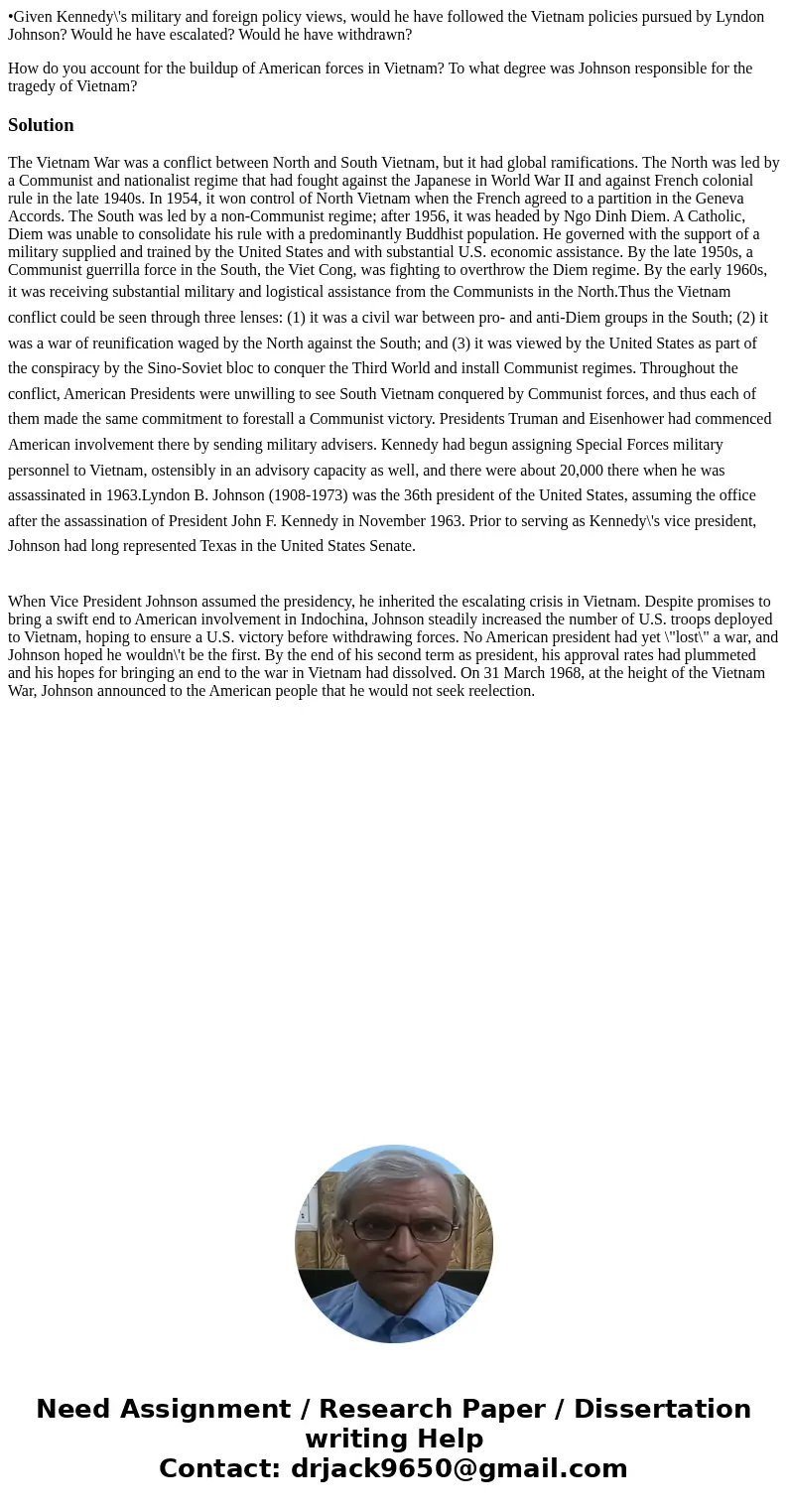Given Kennedys military and foreign policy views would he ha
•Given Kennedy\'s military and foreign policy views, would he have followed the Vietnam policies pursued by Lyndon Johnson? Would he have escalated? Would he have withdrawn?
How do you account for the buildup of American forces in Vietnam? To what degree was Johnson responsible for the tragedy of Vietnam?
Solution
The Vietnam War was a conflict between North and South Vietnam, but it had global ramifications. The North was led by a Communist and nationalist regime that had fought against the Japanese in World War II and against French colonial rule in the late 1940s. In 1954, it won control of North Vietnam when the French agreed to a partition in the Geneva Accords. The South was led by a non-Communist regime; after 1956, it was headed by Ngo Dinh Diem. A Catholic, Diem was unable to consolidate his rule with a predominantly Buddhist population. He governed with the support of a military supplied and trained by the United States and with substantial U.S. economic assistance. By the late 1950s, a Communist guerrilla force in the South, the Viet Cong, was fighting to overthrow the Diem regime. By the early 1960s, it was receiving substantial military and logistical assistance from the Communists in the North.Thus the Vietnam conflict could be seen through three lenses: (1) it was a civil war between pro- and anti-Diem groups in the South; (2) it was a war of reunification waged by the North against the South; and (3) it was viewed by the United States as part of the conspiracy by the Sino-Soviet bloc to conquer the Third World and install Communist regimes. Throughout the conflict, American Presidents were unwilling to see South Vietnam conquered by Communist forces, and thus each of them made the same commitment to forestall a Communist victory. Presidents Truman and Eisenhower had commenced American involvement there by sending military advisers. Kennedy had begun assigning Special Forces military personnel to Vietnam, ostensibly in an advisory capacity as well, and there were about 20,000 there when he was assassinated in 1963.Lyndon B. Johnson (1908-1973) was the 36th president of the United States, assuming the office after the assassination of President John F. Kennedy in November 1963. Prior to serving as Kennedy\'s vice president, Johnson had long represented Texas in the United States Senate.
When Vice President Johnson assumed the presidency, he inherited the escalating crisis in Vietnam. Despite promises to bring a swift end to American involvement in Indochina, Johnson steadily increased the number of U.S. troops deployed to Vietnam, hoping to ensure a U.S. victory before withdrawing forces. No American president had yet \"lost\" a war, and Johnson hoped he wouldn\'t be the first. By the end of his second term as president, his approval rates had plummeted and his hopes for bringing an end to the war in Vietnam had dissolved. On 31 March 1968, at the height of the Vietnam War, Johnson announced to the American people that he would not seek reelection.

 Homework Sourse
Homework Sourse